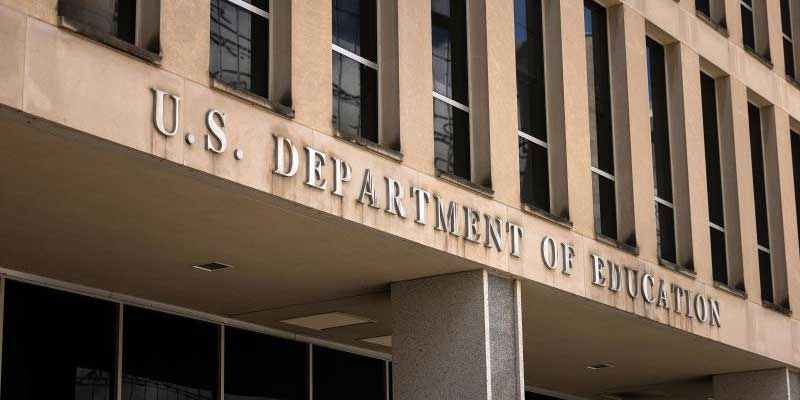New Jersey Attorney General Matthew J. Platkin and 21 other attorneys general today filed a lawsuit against the U.S. Department of Education for unlawfully restricting eligibility for the Public Service Loan Forgiveness (PSLF) program, which allows government and nonprofit employees to have their federal student loans forgiven after 10 years of public service.
The lawsuit filed today challenges a new federal rule that would deem certain state and local governments or nonprofit organizations ineligible employers for PSLF if the federal government determines they have engaged in so-called “substantial illegal” activities – a vague standard that the Administration has defined as sweeping in activities that are disfavored by the administration and do not align with this administration’s policy agenda. The coalition argues that the broad new rule is unlawful and targeted to punish states and organizations that the administration disfavors.
“Since taking office, President Trump has denigrated hardworking public servants who make tremendous sacrifices every day for their communities. At a time when the cost of higher education continues to skyrocket, limiting access to public service loan forgiveness is a shortsighted, reckless, and illegal attack on public-minded employees who keep us safe and provide our residents with critical services,” said Attorney General Platkin. “Serving our country in law enforcement, education, healthcare, and government is deeply honorable, and we should be doing everything in our power to encourage Americans to give back to their communities through public service. The Public Service Loan Forgiveness program makes these honorable pursuits possible for many Americans—but now the Trump Administration is targeting this critical program. We are proud to stand up for our public servants against this illegal and vindictive attack.”
The PSLF program was established by Congress in 2007 to provide financial incentives to those who dedicate their careers to the service of others. The program forgives borrowers’ remaining federal student loan debt after 10 years of qualifying public service and consistent payments. Over the years, PSLF has enabled more than one million public servants to pursue careers that might have otherwise been out of reach. For state governments, PSLF is a critical tool to recruit and retain qualified professionals in vital fields like law enforcement, education, and health care.
On October 31, the U.S. Department of Education finalized a new rule granting itself the power to unilaterally declare entire agencies or organizations ineligible employers for PSLF if the administration determines they have a “substantial illegal purpose.” The rule defines “illegality” to include a cherry-picked list of this Administration’s most disfavored causes and activities, including support for immigrants, political protest, and support for lifesaving gender-affirming health care. The rule is scheduled to take effect in July 2026.
Attorney General Platkin and the coalition argue that this vague new authority could have devastating consequences nationwide. Countless public workers could suddenly lose PSLF eligibility through no fault of their own. States could be forced to confront severe staffing shortages, higher turnover, and increasing costs to maintain essential services.
The coalition’s lawsuit asserts that the new rule is illegal. The PSLF statute guarantees loan forgiveness for anyone who works full-time in qualifying public service; it does not grant the U.S. Department of Education discretion to carve out exceptions based on ideology. They assert that the rule’s vague “substantial illegal purpose” standard is arbitrary and capricious, as it gives the Department unfettered power to target specific state policies or social programs while exempting federal agencies from scrutiny.
The attorneys general are asking the court to declare the rule unlawful, vacate it, and bar the U.S. Department of Education from enforcing or implementing it.
Joining Attorney General Platkin in filing this lawsuit, which was led by the attorneys general of New York, Massachusetts, California, and Colorado, are the attorneys general of Arizona, Connecticut, Delaware, Hawaii, Illinois, Maine, Maryland, Michigan, Minnesota, Nevada, New Mexico, Oregon, Rhode Island, Vermont, Washington, Wisconsin, and the District of Columbia. A group of private plaintiffs and local governments is also filing a lawsuit today to block the implementation of the new rule.

